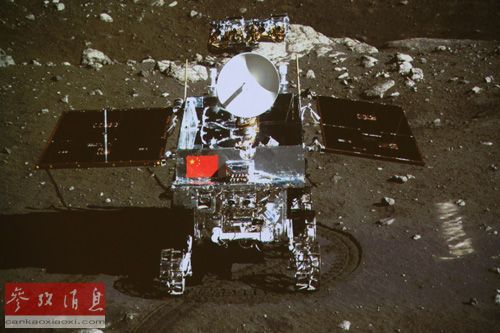News Center
China first moon rover sets record for longest stay
December 25, 2015
English.news.cn 2015-10-29 18:28:59

JINAN, Oct. 29 (Xinhua) -- China's first lunar rover, Yutu, has been operating on the moon for almost two years, setting the record for the longest stay by a rover, according to a Chinese lunar probe scientist.
Yutu was deployed and landed on the moon via China's Chang'e-3 lunar probe in 2013, staying longer than the Soviet Union's 1970 moon rover Lunokhod 1, which spent 11 months on the moon.
Its operations have streamed live through Sina Weibo, a Chinese microblogging site, and its Weibo account has nearly 600,000 followers.
Yutu experienced a mechanical control abnormality in 2014, but it was revived within a month and, though it is unable to move, it continues to collect data, send and receive signals, and record images and video.
"Human history is relatively short, and people are brimming over with curiosity about the universe," said Ye Peijian, chief scientist with China's Chang'e-3 program. "We have to explore more by going out."
The launch of Dongfanghong-1, China's first satellite, in 1970 made China the fifth country to launch a domestic satellite using a domestic rocket, following the Soviet Union, the United States, France and Japan.
China launched its manned space program in the 1990s and successfully sent Yang Liwei, the country's first astronaut, into orbit on the Shenzhou-5 spacecraft in 2003.
The Chang'e-1 mission in 2007 inaugurated an era of Chinese lunar exploration, followed by Chang'e-2 and Chang'e-3, with the latter marking completion of the second phase of China's lunar program, which includes orbiting, landing and returning to Earth.
Chang'e-3 delivered the rover and a stationary lander to the lunar surface in 2013, making China the third country after the Soviet Union and the United States to carry out such a mission.
Meanwhile, China is planning to be the first country to land a lunar probe on the far side of the moon, or "dark side of the moon," which is never visible to Earth.
The mission will be carried out by Chang'e-4, a backup probe for Chang'e-3, according to Ye.
